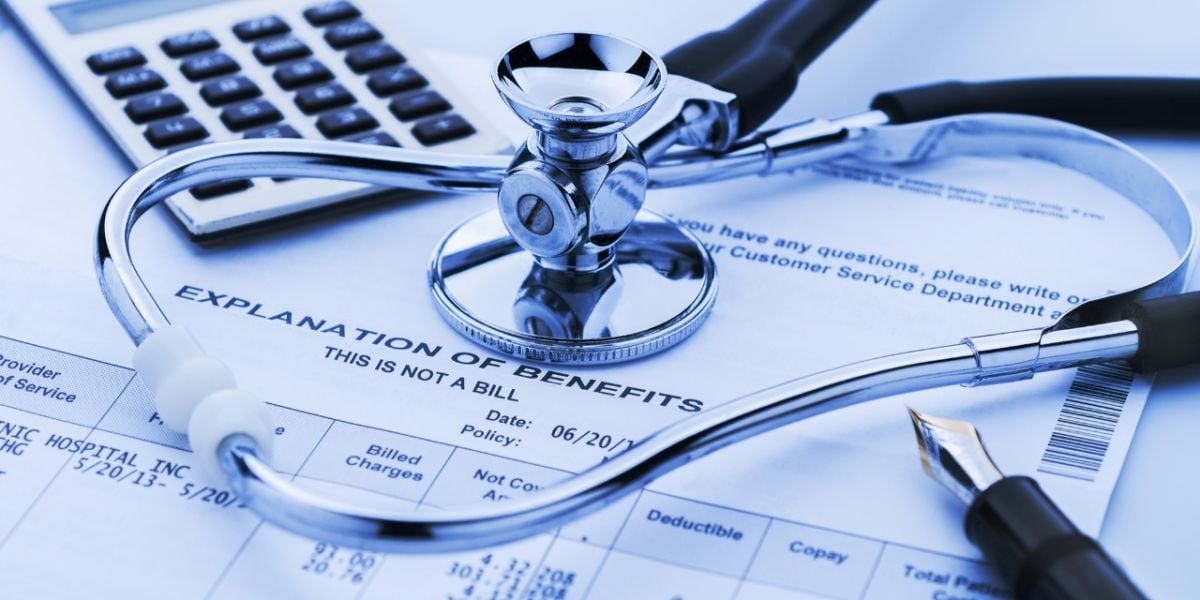
The UAE has high-quality healthcare available to both locals and expats via hospitals, clinics, and healthcare centers. As a resident, you will have access to public health care (after you apply for the national public health card) and private healthcare facilities. Having proper health insurance is essential, as prices at private hospitals in the UAE can get very high.
Thanks to a large number of modern medical facilities, the UAE (and Dubai in particular) is one of the world's top destinations for medical tourism.
Healthcare system in the UAE
There are four main bodies responsible for healthcare in the UAE. These are:
- The Ministry of Health and Prevention (MOHAP);
- Emirates Health Authority (EHA);
- Dubai Health Authority (DHA);
- Health Authority Abu Dhabi (HAAD).
The MOHAP oversees healthcare in the entire country. Then, in each emirate, there is a different local authority that manages healthcare.
Since its establishment in 2007, DHA has served as Dubai's health authority in charge of healthcare planning, promoting investment in healthcare, and monitoring to ensure the quality of healthcare in the emirate (including free zones). All healthcare facilities and professionals operating in Dubai must be licensed by DHA, and facilities undergo regular inspections by the authority's regulation department. In addition to this, DHA owns and operates a number of hospitals and specialty clinics throughout Dubai.
The Health Authority of Abu Dhabi was previously part of a larger General Authority of Health Services but split off in 2007 to serve as the authority in charge of health insurance, health-related policies, and regulating the industry.
Finally, the Emirates Health Authority has the same functions as DHA and HAAD and serves the remaining emirates of Sharjah, Ajman, Ras Al Khaimah, Umm al Qaiwain, and Fujairah.
The UAE has several state-of-the-art medical centers, so finding a hospital or clinic in your area shouldn't be a problem. Moreover, the UAE is a popular destination for skilled health professionals who come from all over the world to work there.
Good to know:
While public healthcare is well-developed, the majority of expats prefer private healthcare. Private hospitals and clinics always have English-speaking staff, and many healthcare professionals employed here are also expats.
How to access healthcare in the UAE?
If you are an expat in the UAE, you can apply for the national public health card through the Emirates Health Services website. This card grants you low-rate public healthcare services in the UAE. You will need to pay a fee of AED 100 if you are from the Gulf Cooperation Council (GCC) and AED 500 for other nationalities, and there are a number of limitations: for instance, you will only have access to certain clinics and hospitals.
To apply for a health card in the UAE, you will need to present the following documents:
- A copy of your passport;
- Your photo on a white background;
- EIDA (Emirates Identification Authority) copy or application;
- Valid residence visa or entry residence visa.
It's also important to note that the health card is valid for 4 years for GCC expats and 1 year for expats of other nationalities. It can be renewed for AED 100.
Health insurance in the UAE
Depending on how much you earn, you might also wish to subscribe to private health insurance. There are many insurance companies to choose from, according to your needs and budget.
However, in most cases, your employer will take care of this for you, or the costs of the health insurance can be split between both parties. If you are employed in Abu Dhabi, your employer will generally provide health insurance coverage for you and your dependents (your spouse and up to three children usually). Your employer in Dubai will also provide you with health insurance, but you will most likely be responsible for getting health insurance for your dependents. That said, this is at the employer's discretion as well as your agreement with the company, so you are advised to check the terms of your contract.
Find more information in our article Healthcare in Dubai.
Private healthcare in the UAE
The UAE has made high-quality private healthcare one of its main draws. In fact, medical tourism is highly developed in the country — especially Dubai — half a million people travel to the emirate for medical care every year.
The government's strategy is to attract visitors to the UAE for medical and other wellness services, dubbed as “healthcare tourism”. Dubai Healthcare City was founded in 2002 and is the world's largest healthcare-free zone.
However, with the high quality of healthcare comes the high cost: prices for private healthcare in the UAE are constantly on the rise. This is why it is essential to have proper health insurance so that you don't run into financial trouble.
Hospitals in UAE
There are two types of hospitals in the UAE: public and private. Most expats in the UAE choose to be treated in private hospitals covered by their insurance plans. If you are in an emergency medical situation, you can get free treatment at any public hospital in the UAE. However, for serious procedures, you may be transferred to a hospital covered by your insurance.
Pharmacies in the UAE
There are several pharmacies in the UAE, many of which work around the clock. Pharmacies that are not 24-hour generally work from Monday to Saturday, from 9 am to 9 pm.
You should have no trouble finding the most popular medications in the UAE. However, some prescription drugs that are widely used in other countries may be illegal in the UAE.
Important:
If you are using prescription medication, make sure to consult the UAE consulate or embassy in your country prior to your travels. Bringing over illegal medication can result in very serious consequences.
How to find a doctor in the UAE?
You shouldn't have any issues finding a medical specialist in the UAE. In most cases, the doctors you have access to depend on your insurance coverage. Note that to see a specialist in the UAE, you can make an appointment with the specific doctor directly — there is no need to first consult a general practitioner (GP). With that, scheduling an appointment with your GP may be beneficial as they may refer you to the best professionals in the field. You can also consult your insurance company regarding the clinics and specialists covered by your plan.
Good to know:
If you are looking for a doctor from your home country, make sure to check with your embassy. Foreign embassies in the UAE often have records of doctors from their country practicing in the region.
Medical care for women in the UAE
Medical care for women in the UAE is also of the highest standards. There are also specialized health centers specifically for women with only female personnel. Most types of contraception are easily available in the UAE, and a prescription is not required to purchase contraceptive pills. Despite being previously prohibited, you can now also find the morning-after pill in most pharmacies.
Maternity care is widely available in the UAE. However — and this is very important — you will need a valid marriage certificate to give birth in the UAE. After a change to the law, however, you will be able to go in for fertility treatments without a marriage certificate.
In large emirates like Dubai and Abu Dhabi, you will have access to specialized maternity and pediatrics centers like Medcare Women and Children Hospital, which specializes specifically in maternity care and paediatrics.
Note that giving birth in the UAE is not cheap. Maternity care bills in private hospitals can reach AED 30,000. Prices in public hospitals are more affordable — around AED 7,000.
Medical care for children is well-developed. You will find pediatricians in most hospitals and clinics in the UAE, and there are also specialized healthcare centers for children, such as Al Jalila Children's Specialty Hospital in Dubai. There are mandatory vaccinations for children in the UAE. If you are a UAE resident, you will have access to free vaccinations for your child at a public hospital or clinic.
Dental care in the UAE
The United Arab Emirates is known for great dental care — and, surprisingly, it is not overly expensive. As there is a high concentration of dental professionals in the country, the competition between them is quite high — and this makes prices for dental care relatively affordable. Some health insurance plans include dental care, either fully covered or under a co-payment system, but in a lot of cases, they do not. If you plan to get some extensive dental work done in the UAE, make sure your health insurance plan reflects that.
Medical emergencies in the UAE
To call an ambulance in the UAE, dial 999. Be ready to describe the nature of your emergency, the state of the person affected, and your exact location. Note that you will be answered in Arabic, but operators speaking English and other languages can help you out on demand.
In a medical emergency, all related treatments in a public hospital are free of charge. However, as the patient's condition is stabilized, they will probably be transferred to a different facility covered under their insurance plan for further treatment.
Before flying to the UAE
You generally do not need to conduct any sort of medical test before arriving in the UAE. However, in rare cases, a medical certificate may be required depending on which country you are flying from. It's best to consult with the UAE consulate or embassy in your country before you travel. That being said, you will have to be vaccinated against hepatitis A and B, typhoid, diphtheria, tetanus, polio, and rabies. You may also need to be vaccinated for yellow fever if you are traveling from a country that is considered at high risk of the disease, including transits of over 12 hours.
It is also imperative that you undergo a medical examination once you are in the United Arab Emirates as part of your application for a resident visa. Your spouse and dependents joining you are also required to go through the same procedures. Anyone who tests positive for HIV, hepatitis B, or tuberculosis will be denied a visa.
Tips for staying healthy in the UAE
Is Dubai tap water safe to drink?
Generally, yes. The Emirates Authority for Standardization and Authorization states that tap water in the UAE is safe for human consumption. However, it is important to note that water tanks are the responsibility of each building, and as such, it is not recommended to drink tap water as the maintenance of these tanks cannot be regulated. With that, a lot of expats in the UAE choose to purchase bottled water instead — or boil tap water before using it in cooking. Ninety-nine percent of tap water in the UAE comes from desalination plants: it is basically seawater from the Arabian Gulf that has been processed to make it potable.
To make sure your tap water is safe to drink, consider the following steps:
- Make sure your water tanks and plumbing are well maintained and have them regularly cleaned;
- Have water samples from your tap tested at an Emirates International Accreditation Centre-approved laboratory.
Avoid long exposure to the sun and heat
The UAE is known for its hot summers with temperatures rising to as high as 50 degrees Celsius (122 degrees Fahrenheit). If you are not used to such temperatures and long periods of sun exposure, make sure to take the necessary precautions: use sunscreen, drink plenty of water, and don't stay in direct sunlight for too long.
Make sure your health insurance in the UAE is up-to-date
We've mentioned this earlier in this article — but health insurance in the UAE can't be overestimated. Choose your insurance plan carefully and make sure you have proper coverage to avoid exorbitant private healthcare costs.
In general, there is everything you need to keep a healthy lifestyle in the UAE. There are lots of outdoor and indoor physical activities to engage in, from fitness and gym to swimming and surfing. There are lots of restaurants that specialize in healthy food, and local supermarkets have a generous selection of fresh, nutritious products. What's more, if you feel that you need a break, you can always relax and focus on your well-being at one of the country's many wellness resorts.
Useful links:
Ministry of Health of the United Arab Emirates
We do our best to provide accurate and up to date information. However, if you have noticed any inaccuracies in this article, please let us know in the comments section below.











